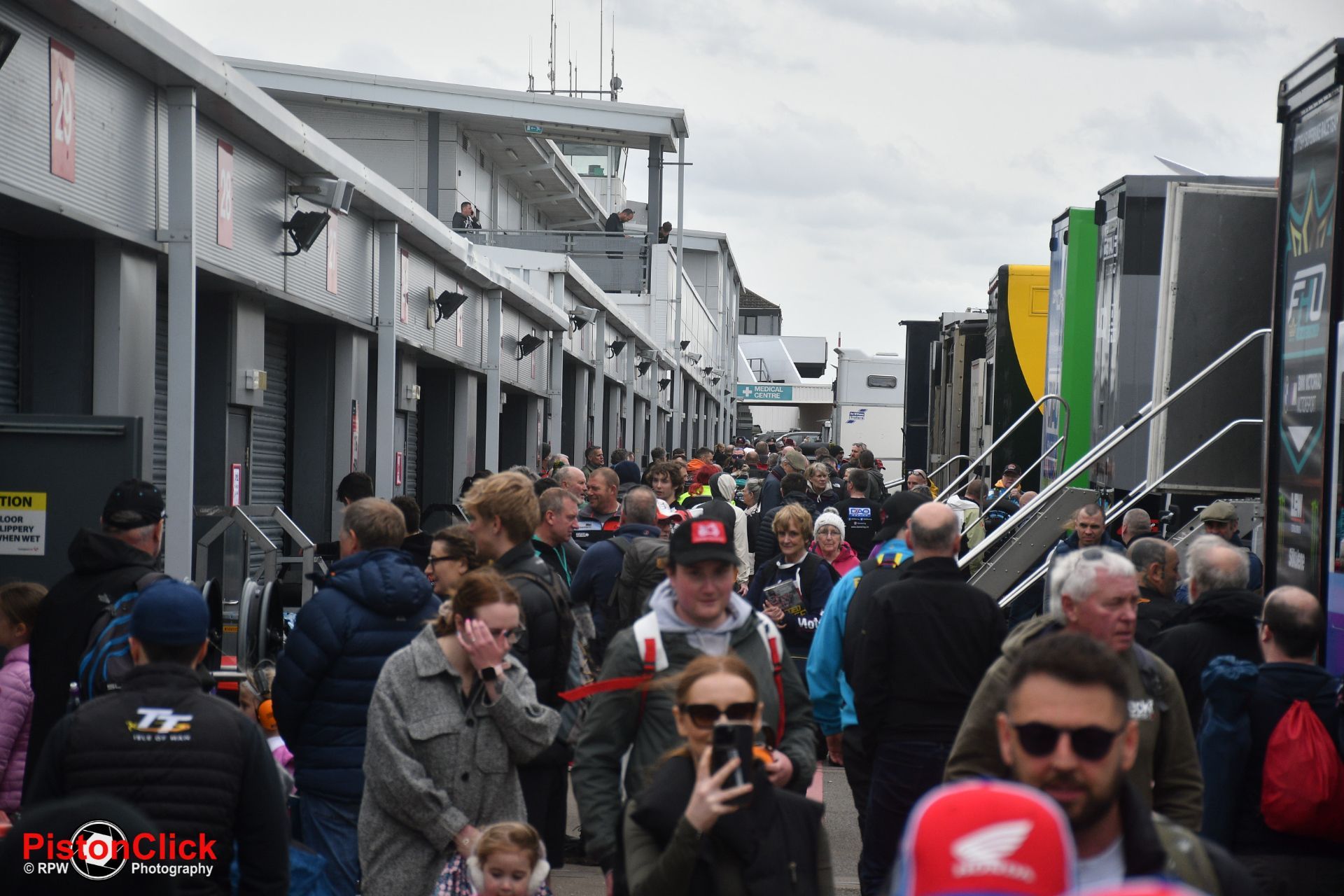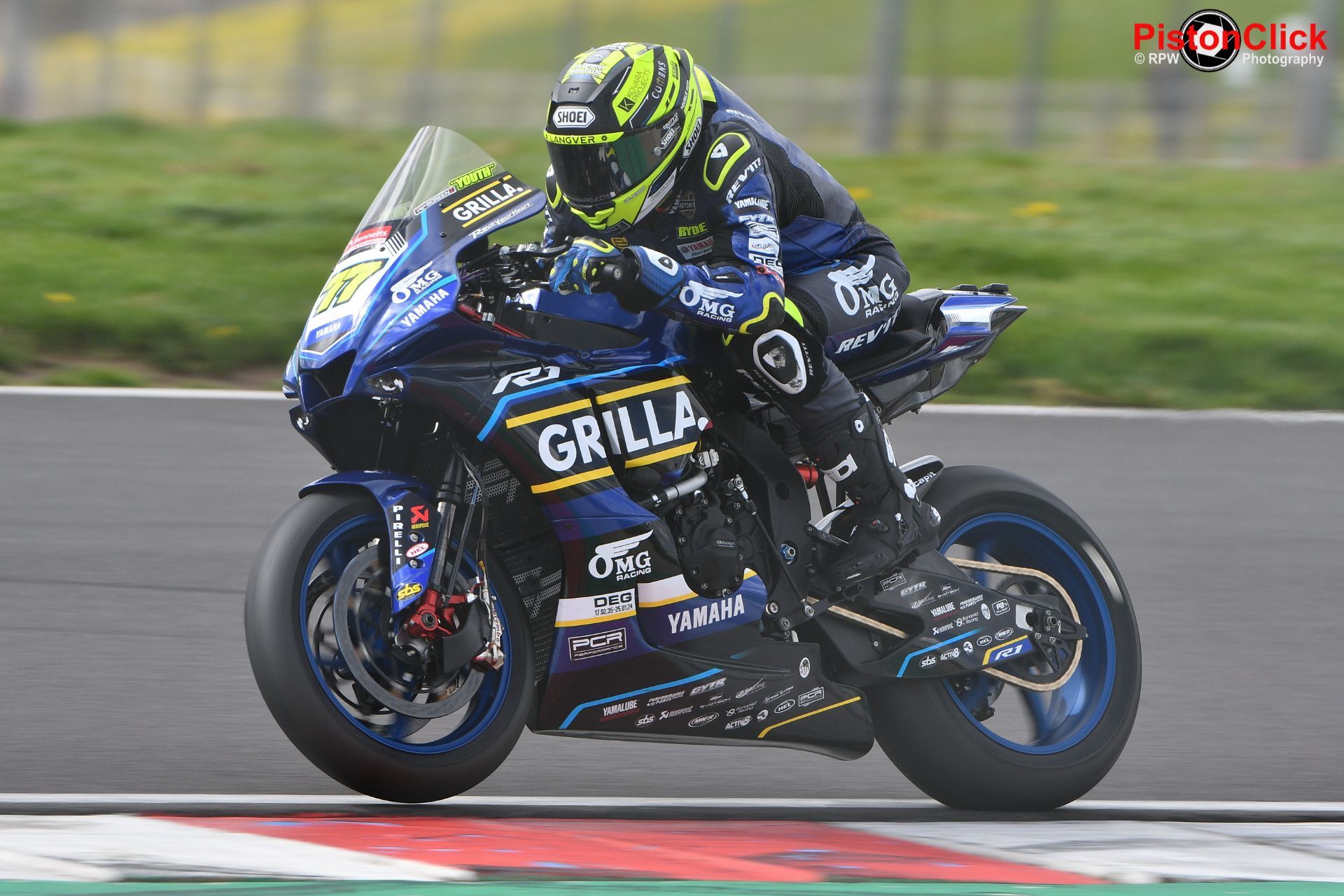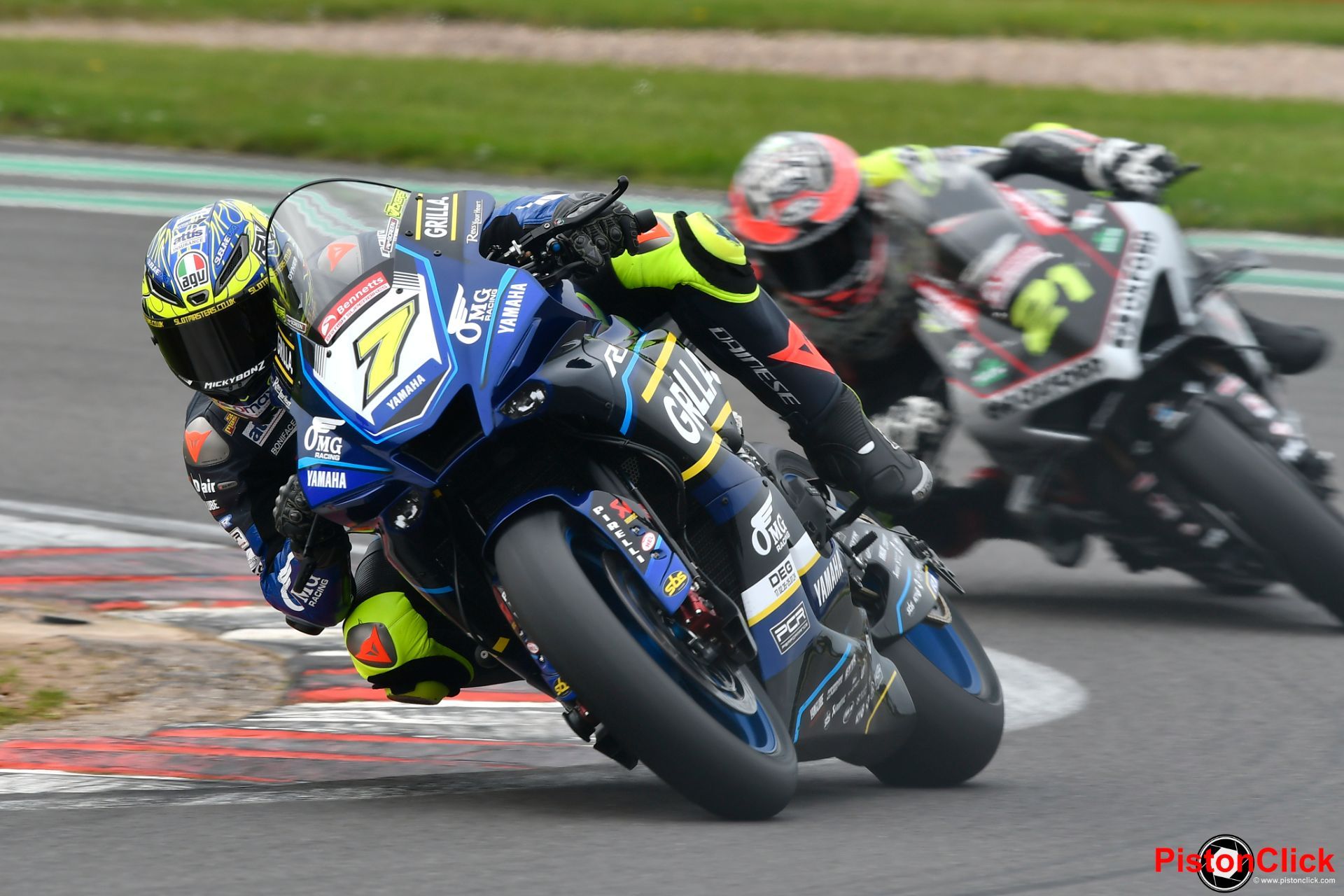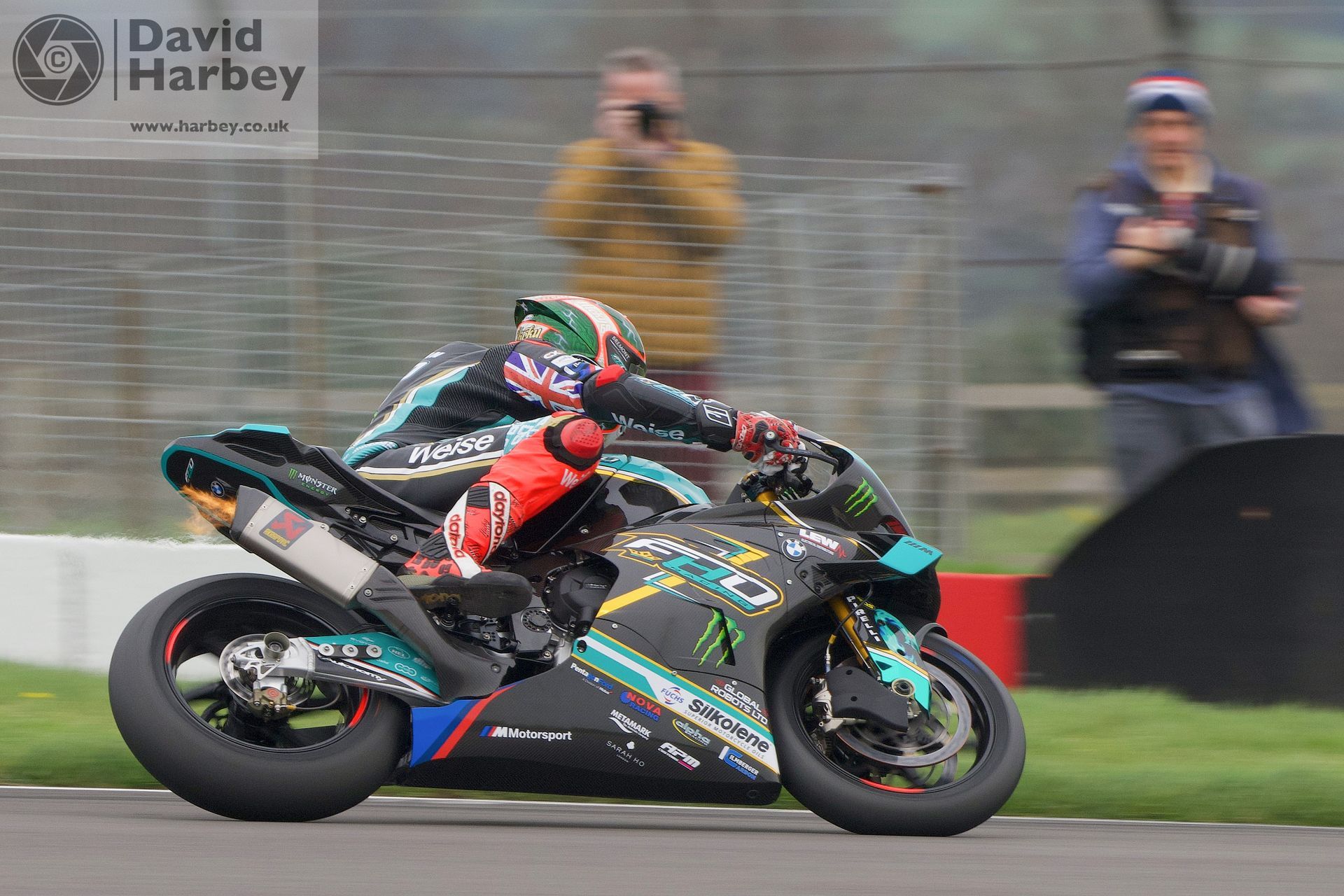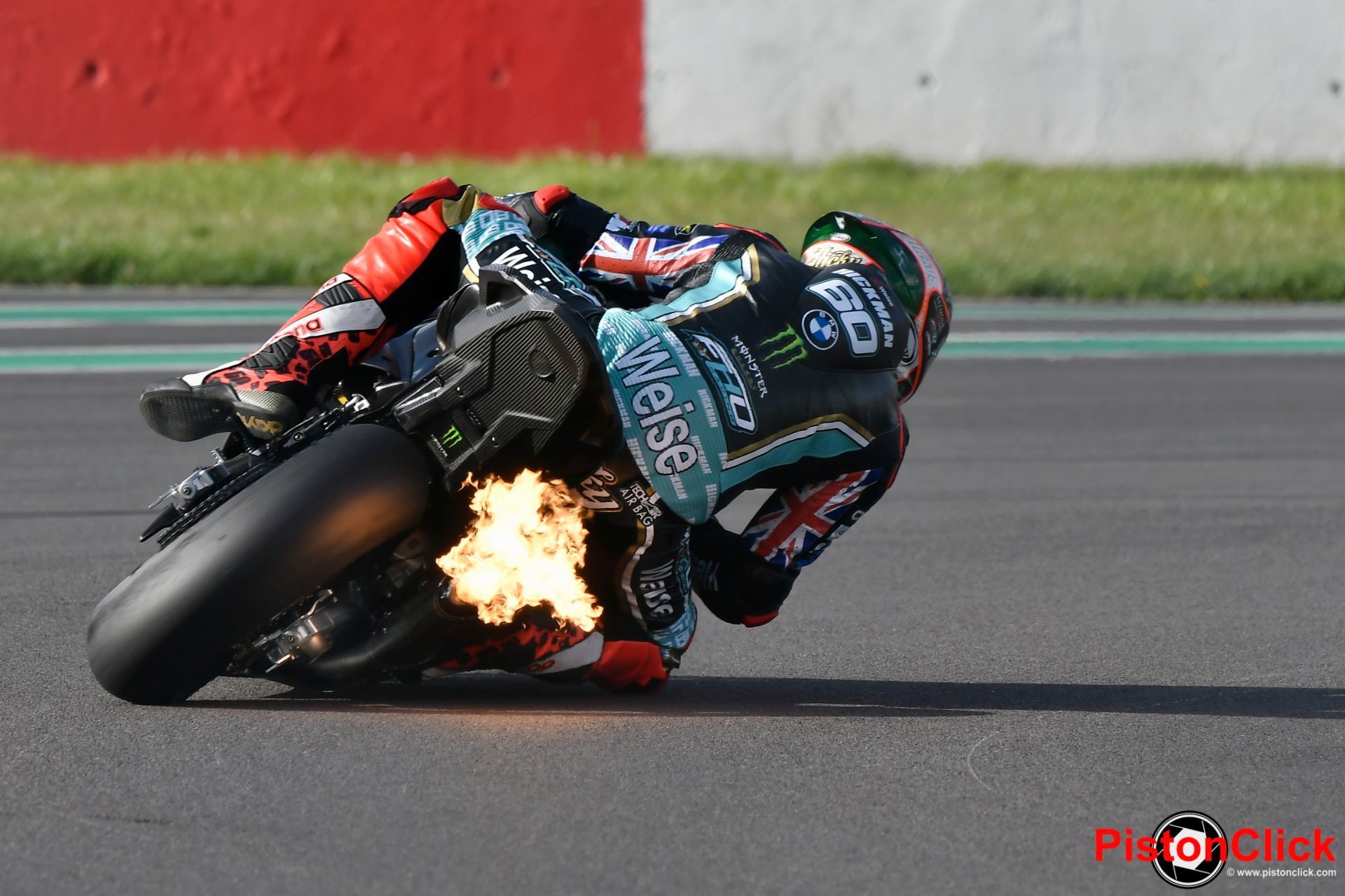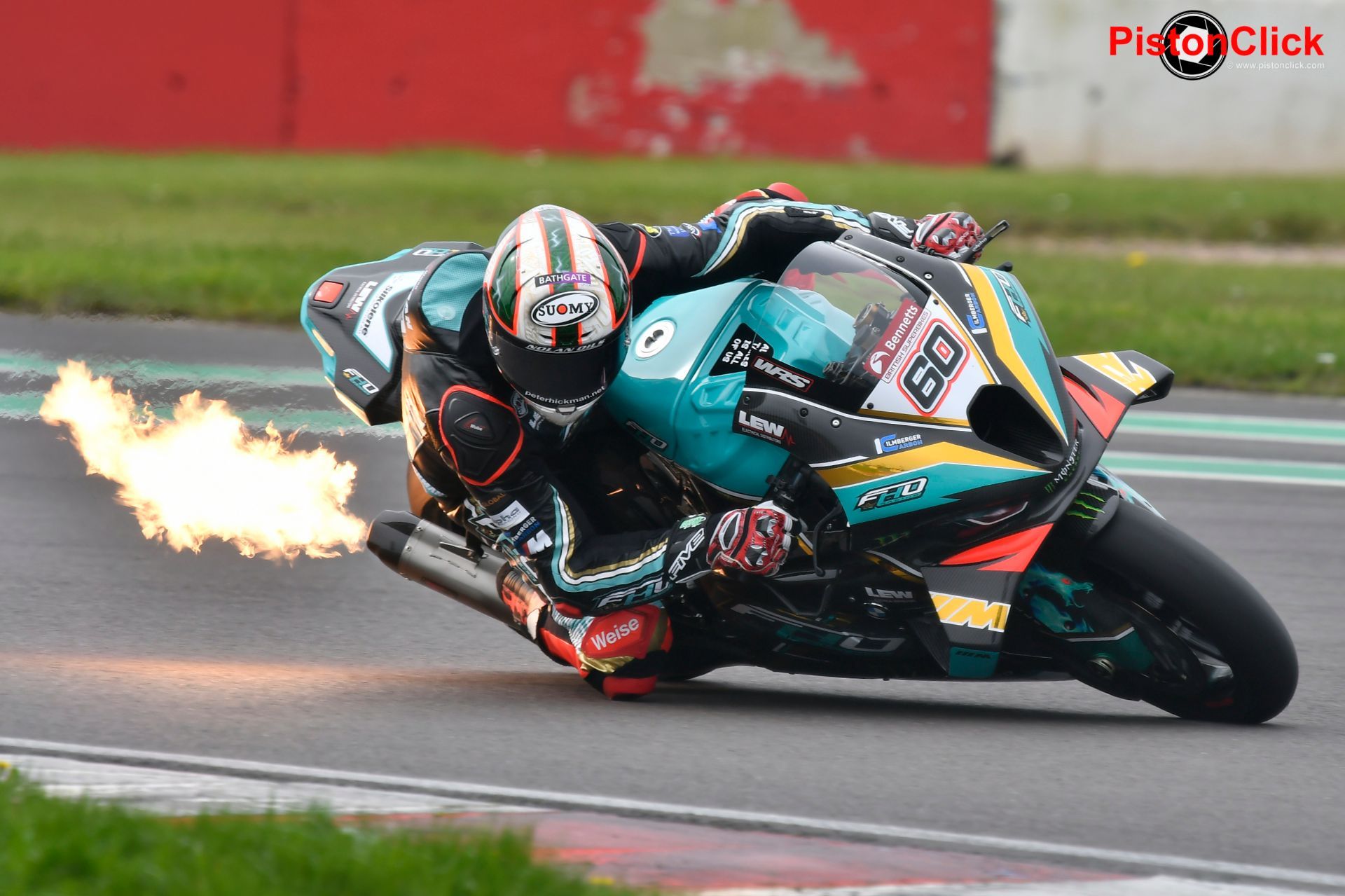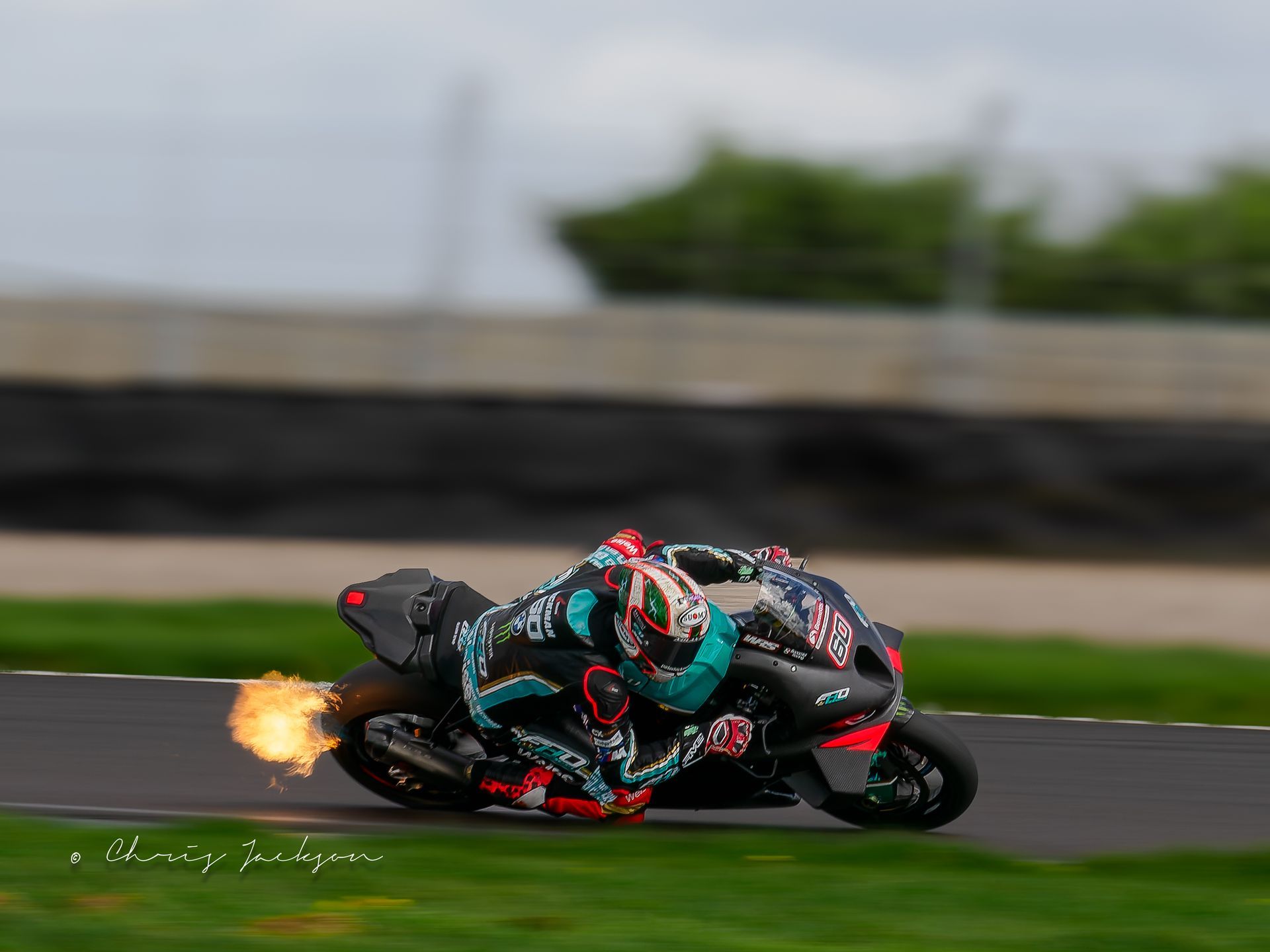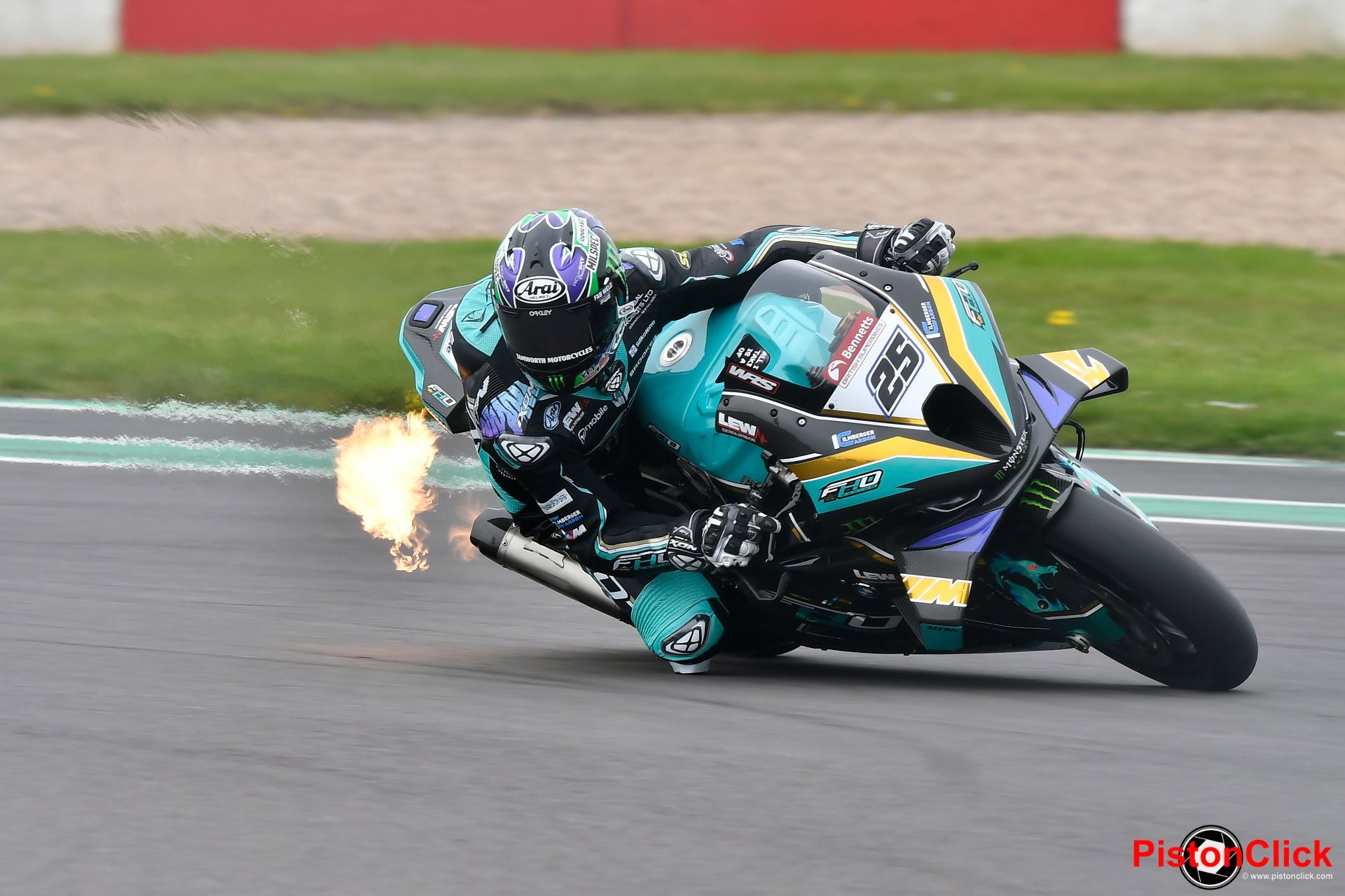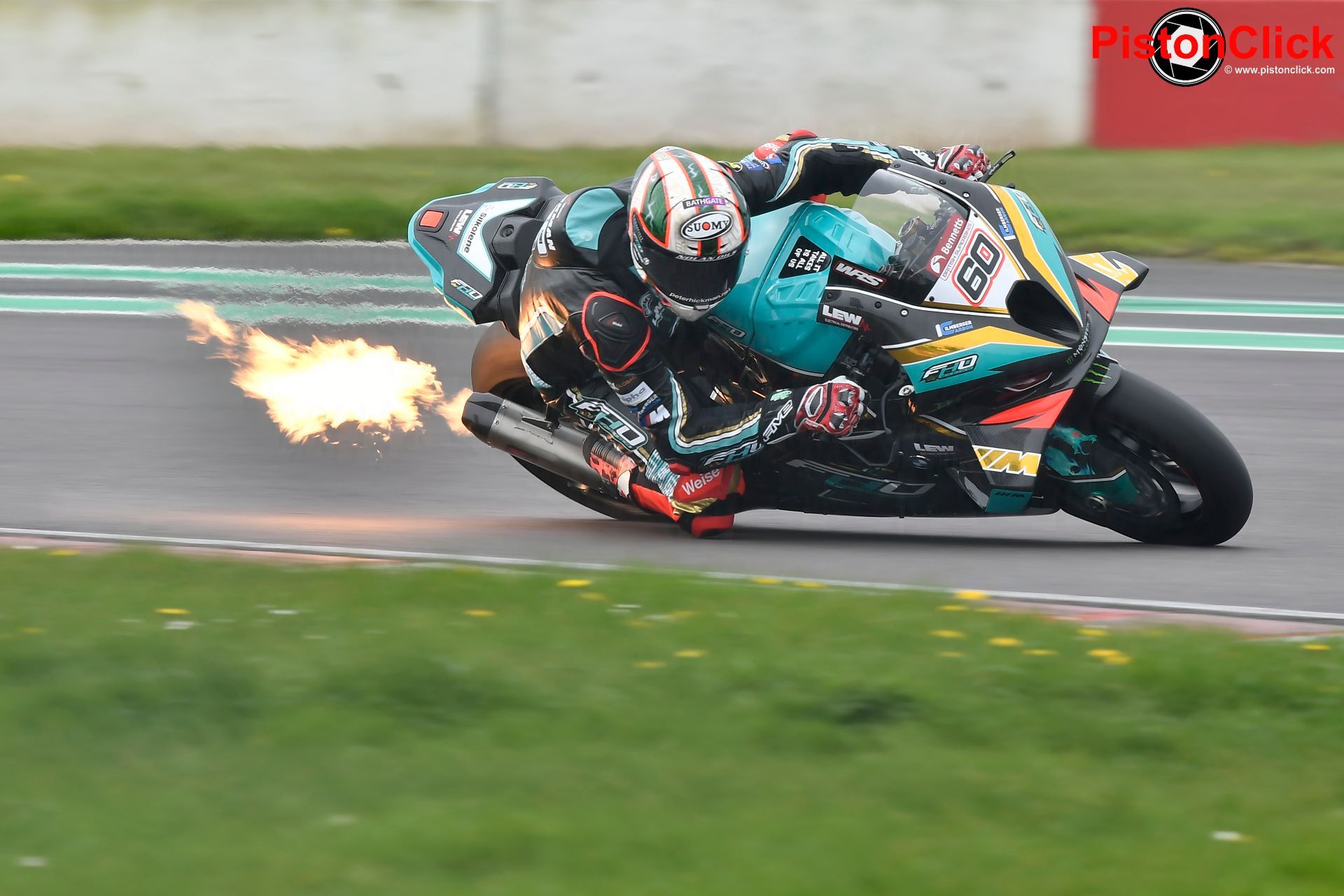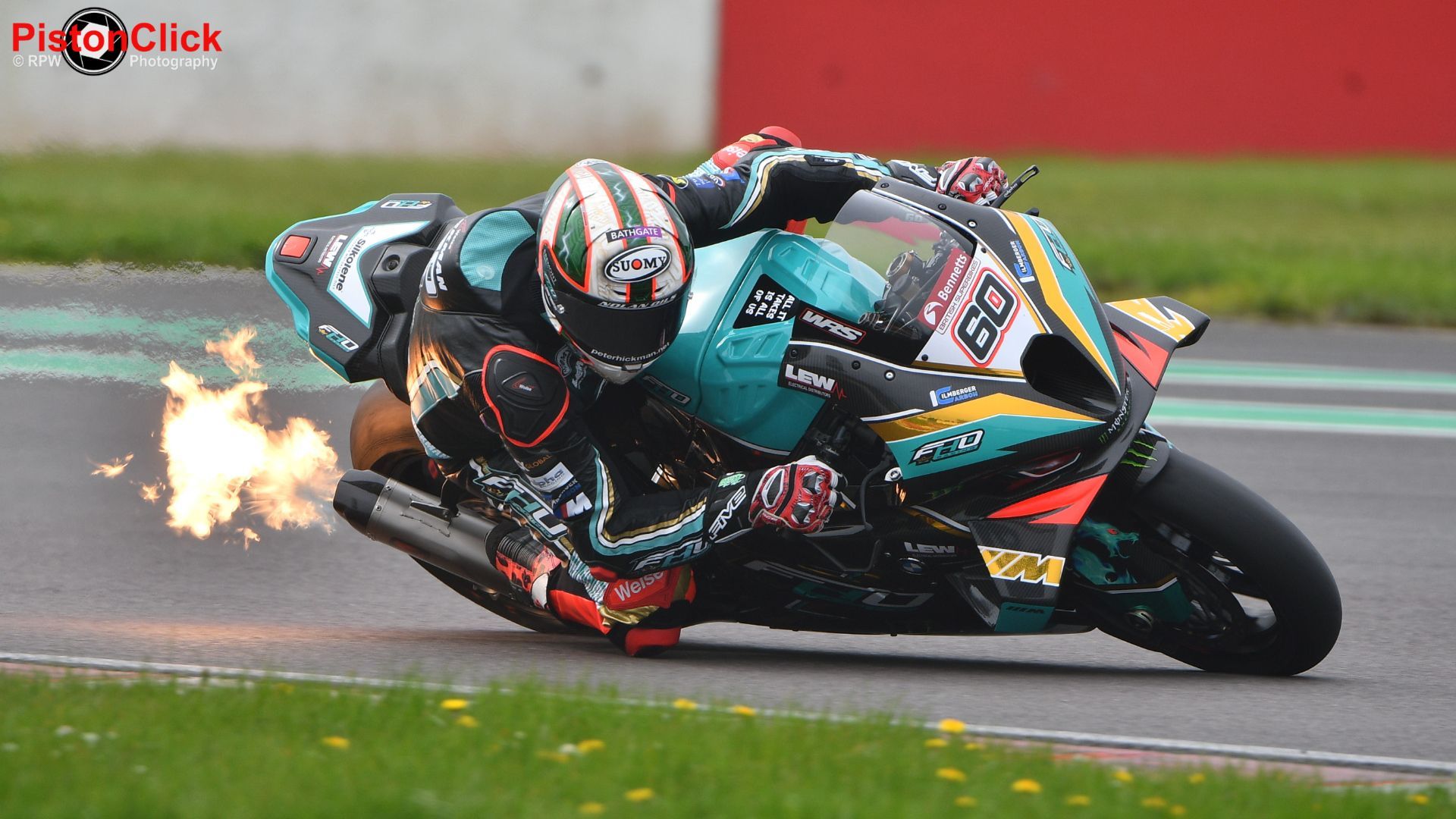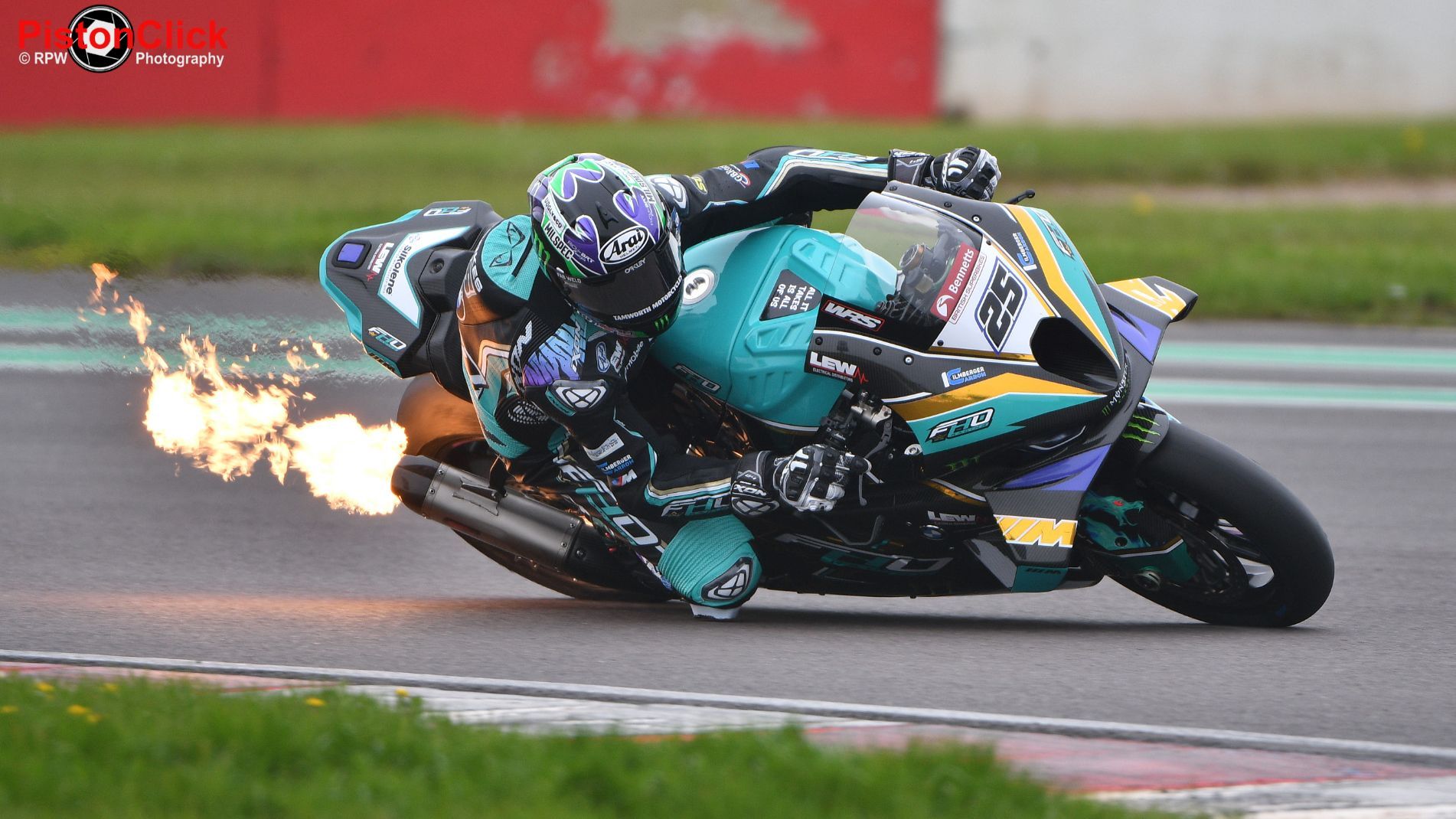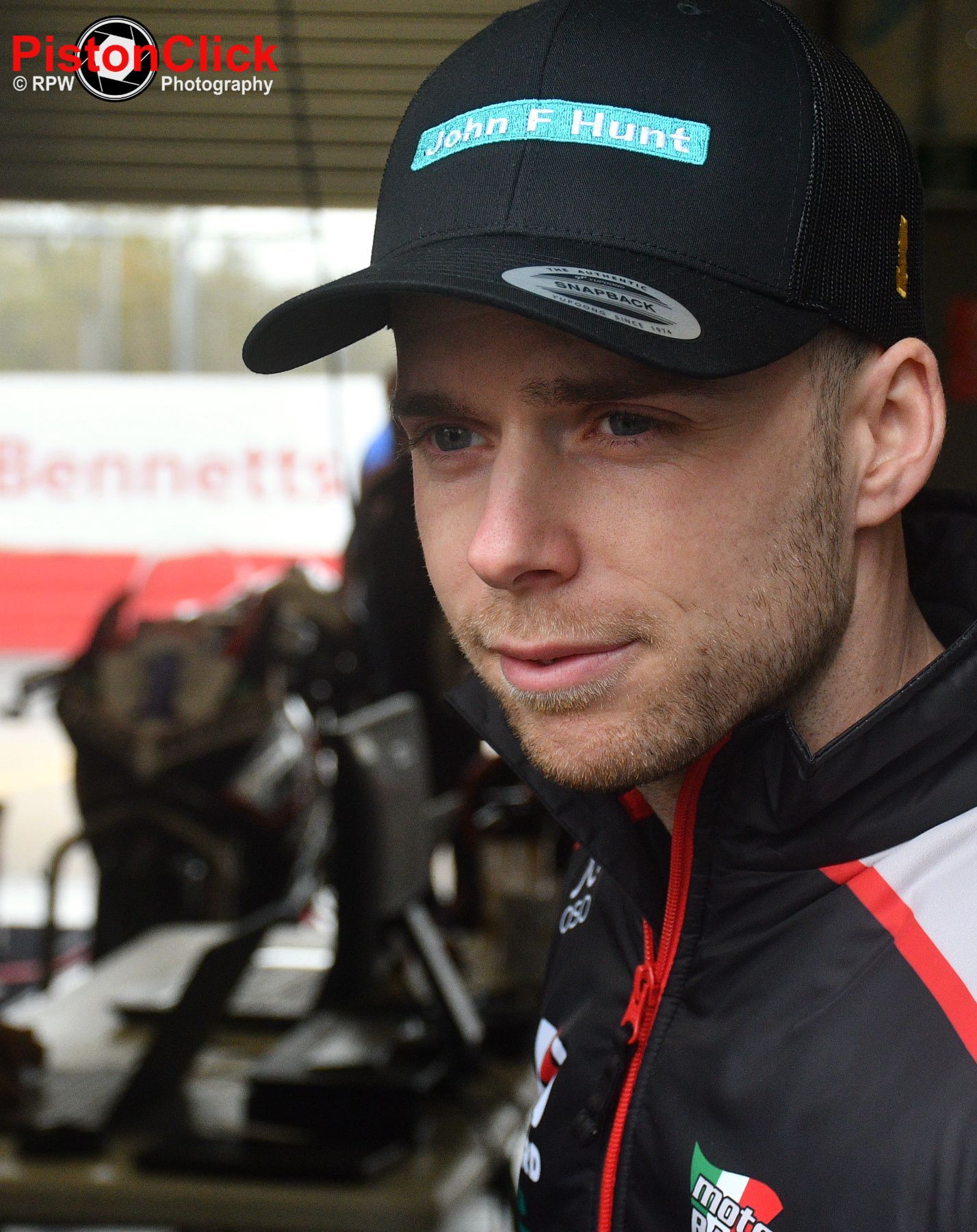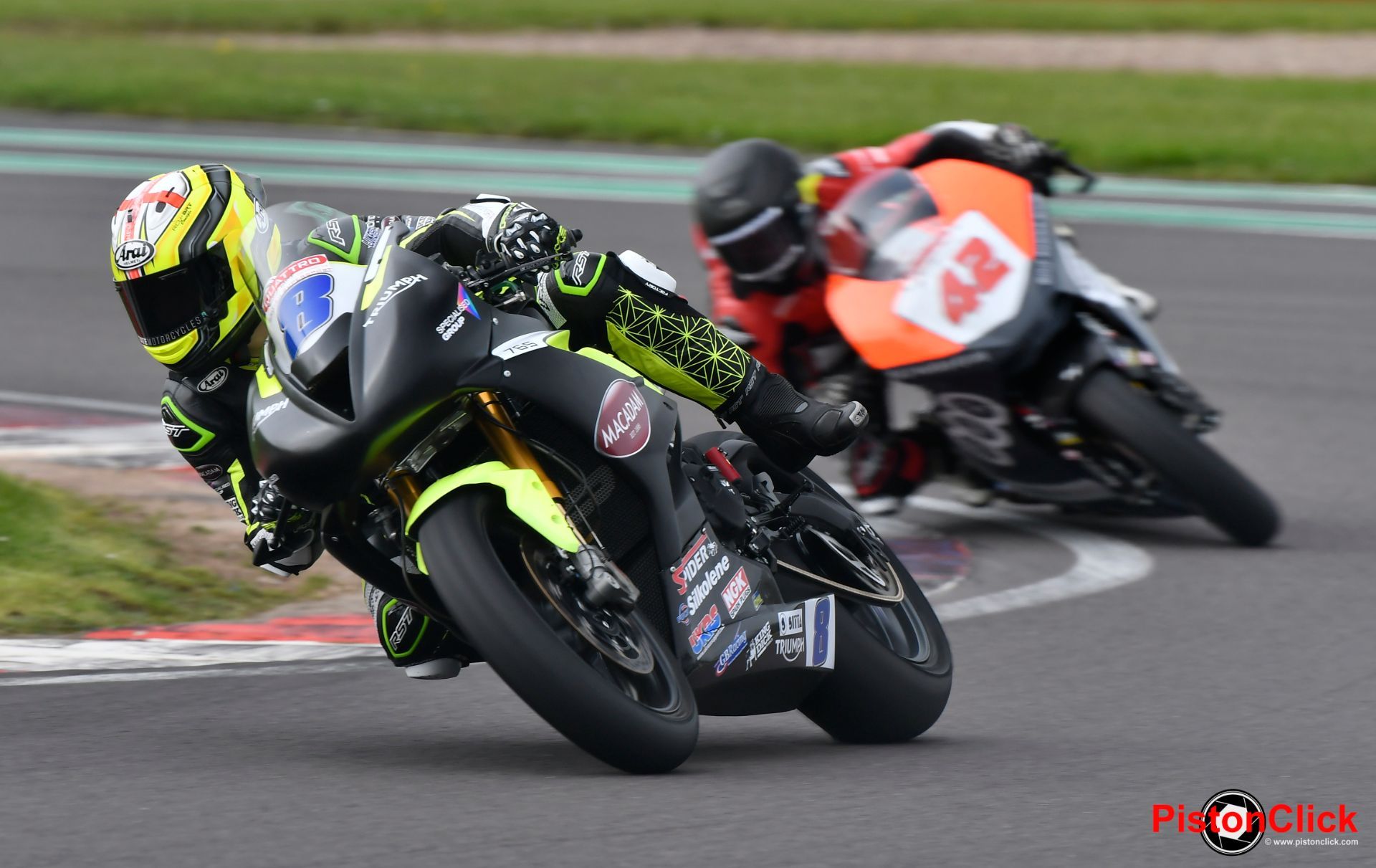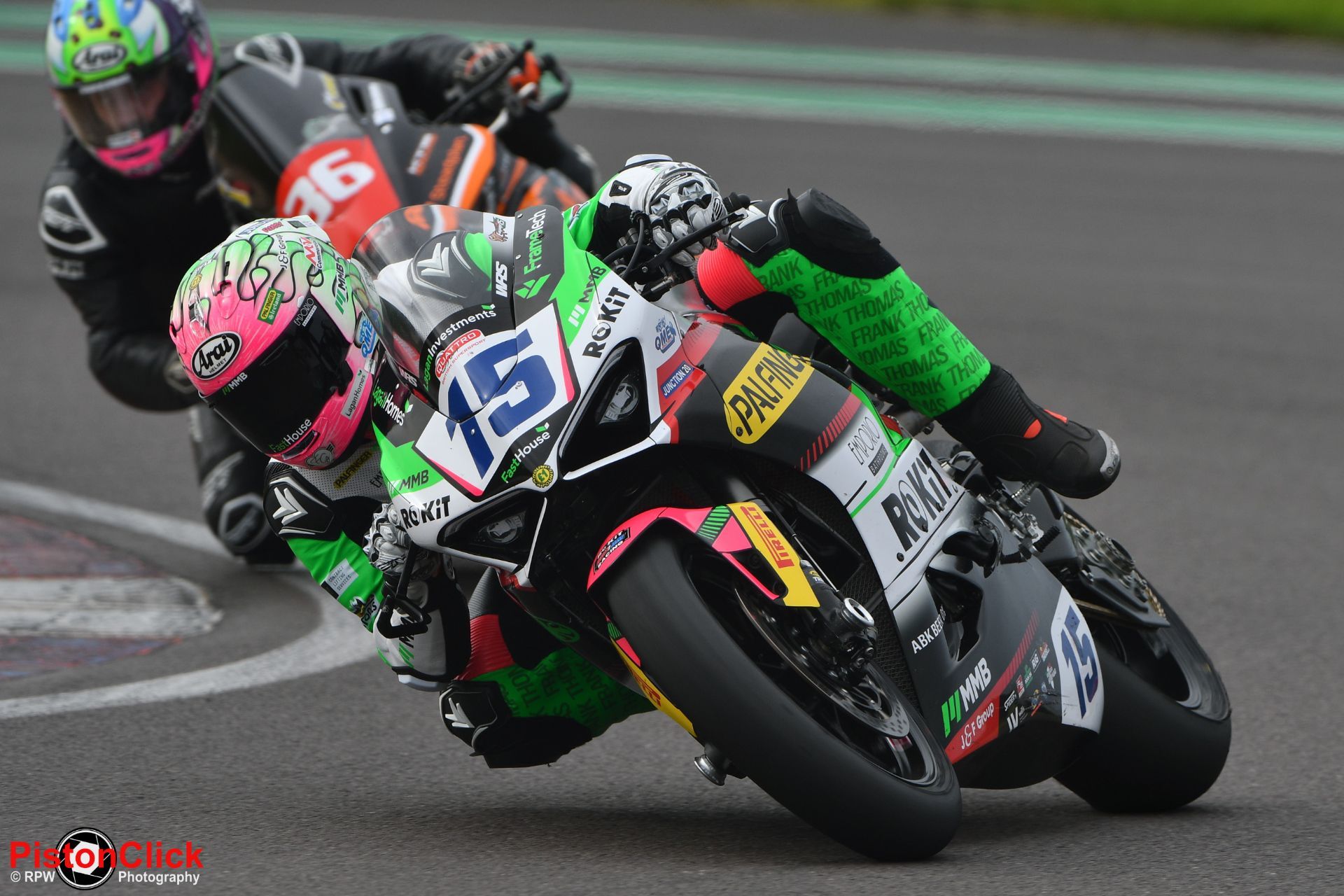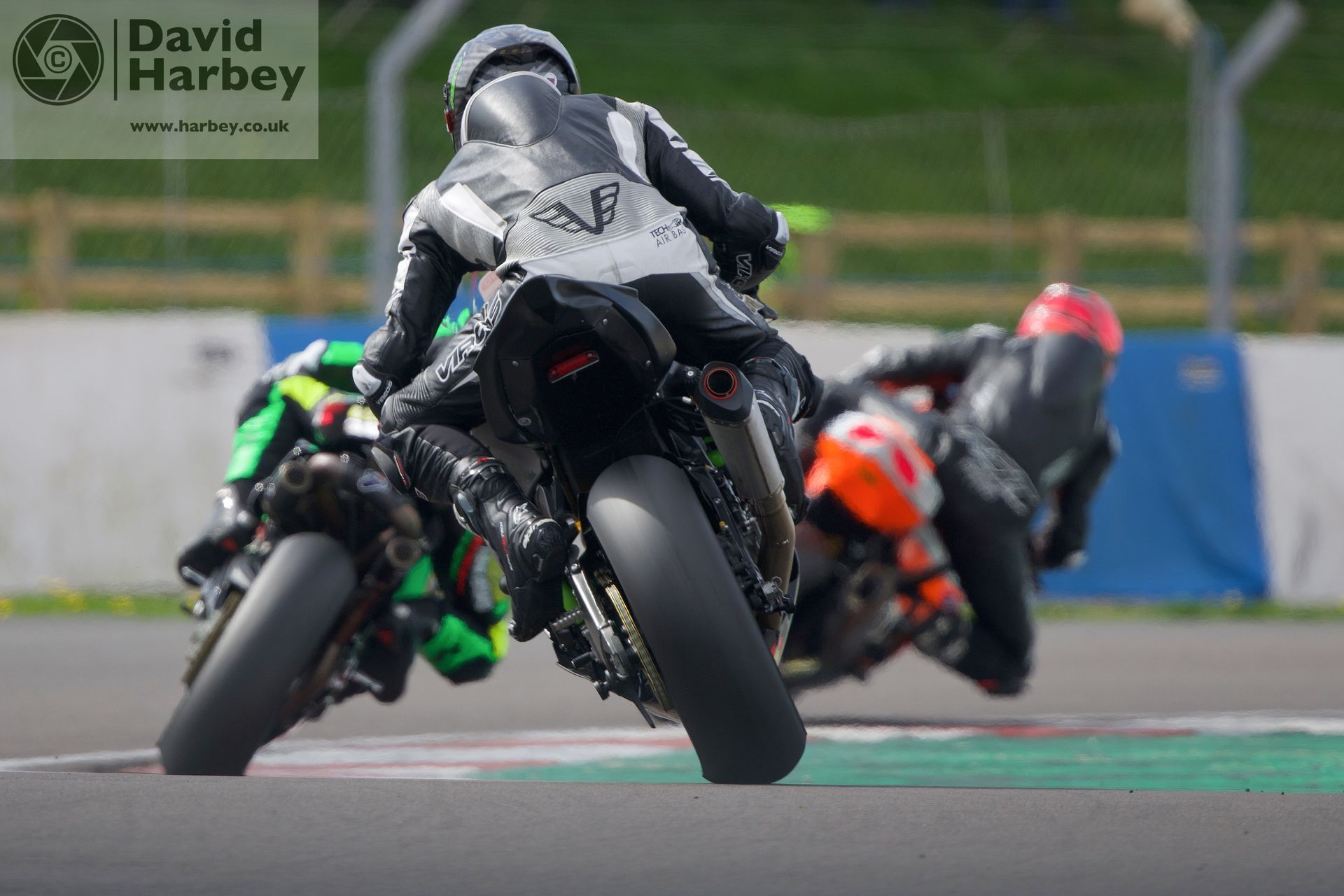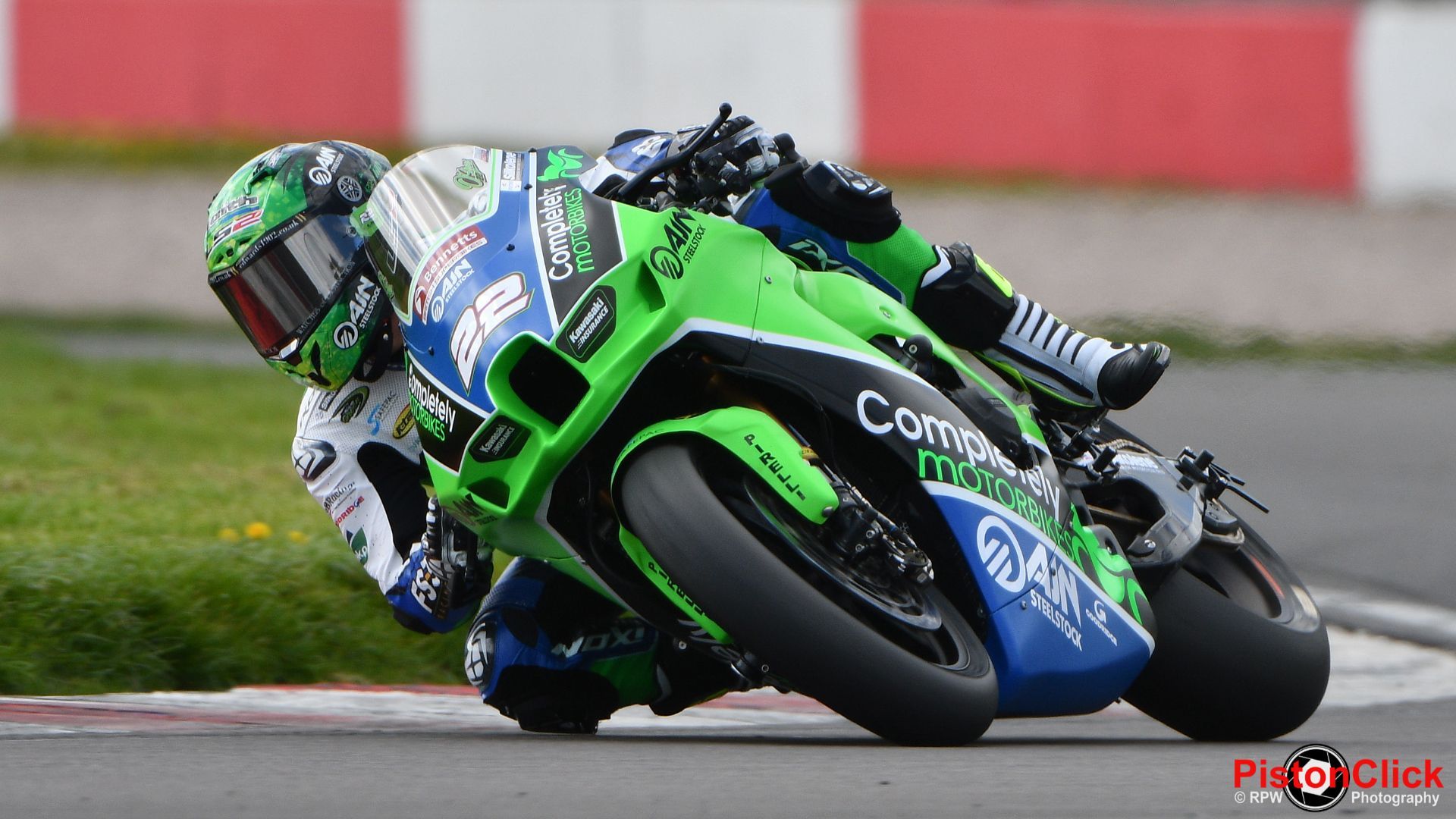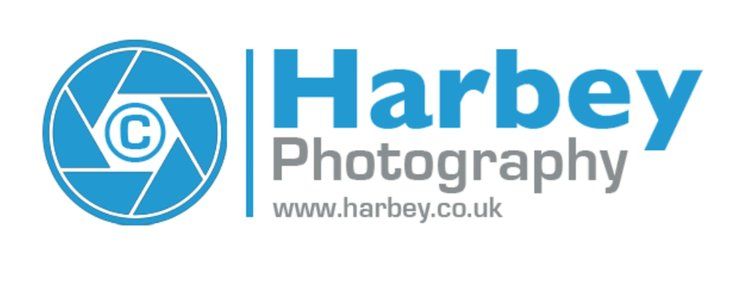
British Superbikes test day Donington Park
6-7 April 2024
The March and April Pistonclick motorsports calendar is full of mid week test and media days. This usually gives our team of photographers who shoot and report from the spectator side of the fence the first chance to see the new race cars and bikes up close. So it was a bit of a surprise that the British Superbikes first test day of the new season was being held over a blustery weekend.

For many years the BSB test days had been free to attend as not many fans would turn up on a cold Tuesday in April to watch bikes possibly “not race” and on some tests not even turn up at all! I remember a few years ago the teams running BMWs didn’t do the Silverstone test due to “supply” issues with parts but were tearing up the track at Cadwell the day after the official test!

With low attendance numbers, MSV who run the tracks for test days, didn’t have to employ staff and so were happy to make the test days free for the fans. Over the years, mainly after the pandemic, the interest in BSB test days has increased which has required MSV to provide event staff. This is probably why you now have to pay £13 on the day to watch a load of bikes with black fairings possibly “not race”.

So why do the fans turn out in good numbers to watch what is an event mainly for the teams to gather data and ensure all of the team support elements run smoothly? Well the not racing statement is not as clear cut as it seems.
The test day is also an opportunity for all of the support organisations to test their processes. One of those organisations is TSI timing who provide live timing and a results service for the championship.
Circuit maps with tracking showing the location of individual bikes and laps in real time are available not just to the teams but to the fans as well. The spectators who turn up are not just BSB fans, they will also be interested in World Superbikes, MotoGP and road racing.
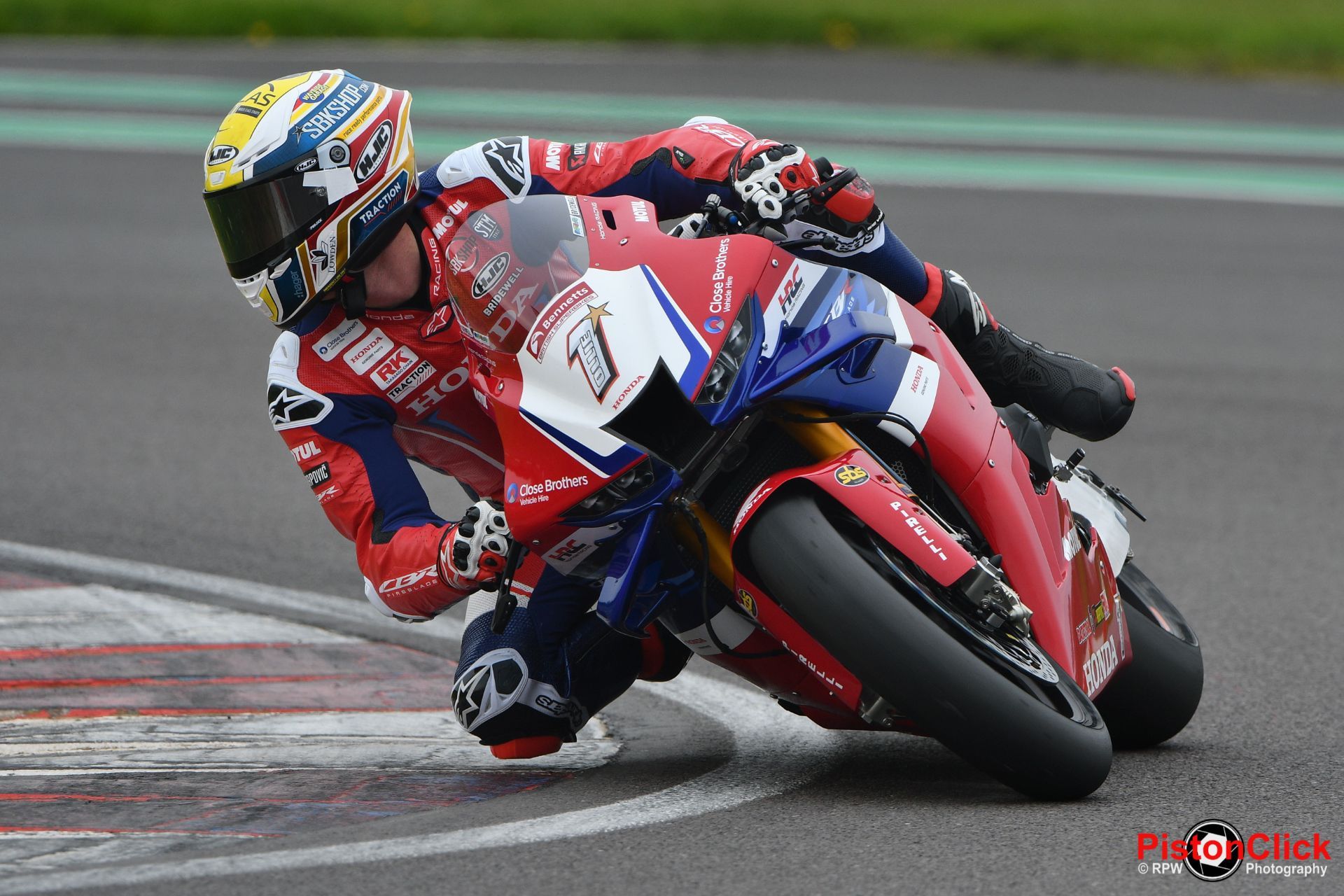
It is that last form of motorsports, road racing, when the “not racing” statement is not as clear cut as it seems comes into play. The most famous road race in the world is the Isle of Man TT and is not a race in the true sense of those words as it is now a time trial.
To try and keep the TT as safe as possible the riders set off from the start line in intervals with a 10 second gap. A lot of racing incidents in all motorsports occur from racers coming into contact with each other, or making a move on one another and the gap disappearing.

This is quite similar to a BSB test day. The riders enter the track from the pits when the teams want them to and are not formed up on a grid for a mass start. The riders are then trying to set the best lap of the day, a bit like a time trial. Mini races will break out but you will see riders pull over and try to leave a gap between themselves and the other racers so they don’t help out other teams with a tow.
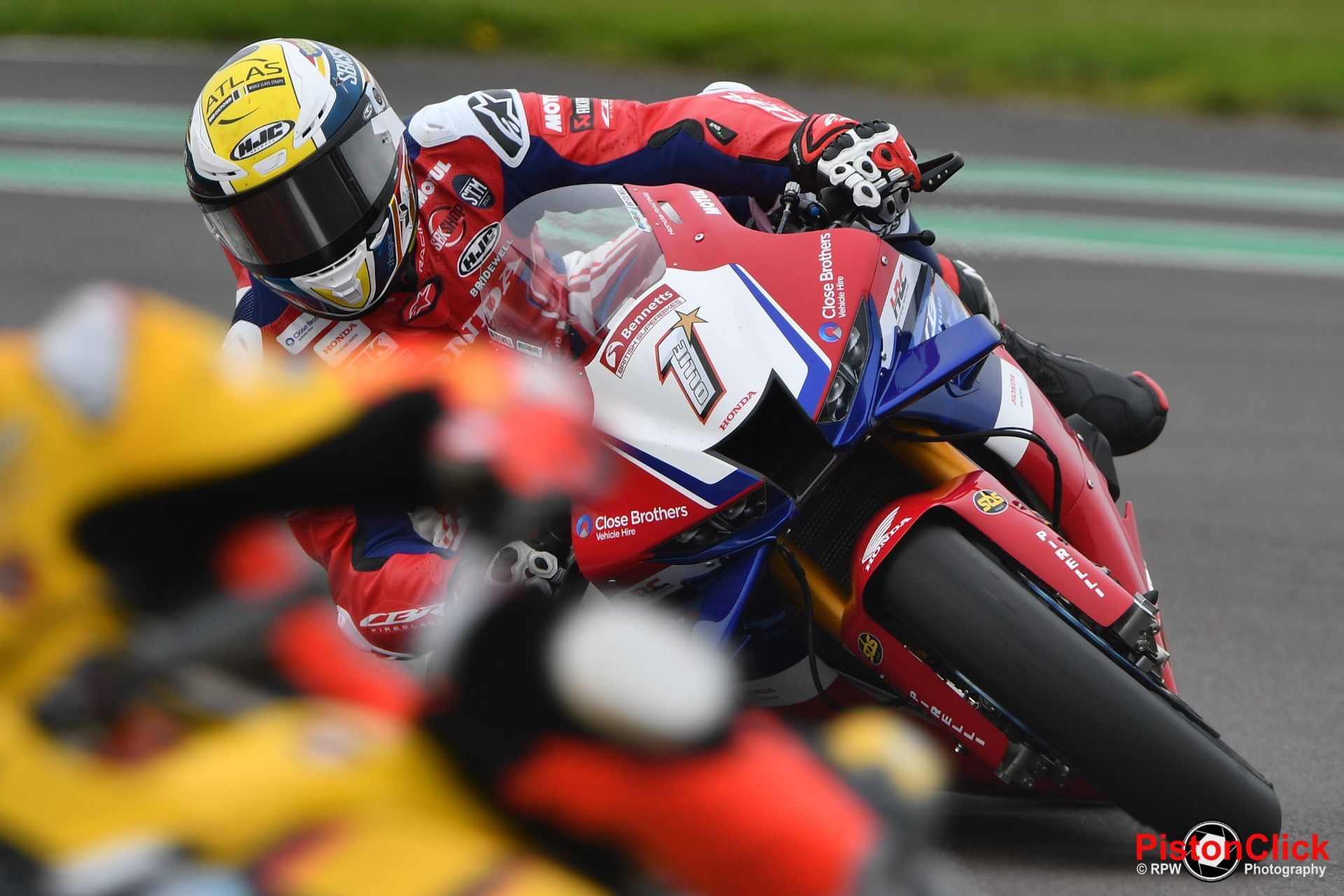
So, for the fans taking note of the times set, it can still be a quite interesting day out. You don’t get the thrills and spills of a 30 minute race but the excitement can rise as the racers post faster and faster times, with the last few laps of the 75 minutes sessions being the most manic.
Those frantic few last laps can also give an indication of potential for the upcoming season. It’s not a great way of working out contenders for the title, there are so many other factors to take into consideration, but it does show who has this year’s fast bike.

Spoiler alert, same bikes as last year. The blue Yamahas of Ryde and Vickers were setting some fast times - one and three in the overall combined classification with last year’s runner up #2 Glen Irwin also looking good on the PBM Ducati. As a team, PBM is just running one bike this year and must be happy with Irwin being second fastest over the weekend.
Glen’s brother #18 Andrew took the fourth spot ahead of last year’s champion Tommy Bridewell who moved from the PBM team to Honda UK.
Peter Hickman was 6th fastest just behind Bridewell in the overall combined classification. Hickman and team mate Josh Brookes were spitting flames everywhere as usual! I don’t know if it was the atmospherics or the team have turned the wick up on the bikes, but the flames were excellent! Who doesn’t like a bike spitting flames?!
In the support races #74 Davey Todd in the National Superstock was fastest, followed by #19 Joe Talbot and #75 Jamie Perrin. In the British Supersport class last year’s champion #1 Ben Currie set the pace ahead of #8 Luke Stapleford and #15 Eugene McManus.
#4Jack Kennedy on the Mar-Train Racing Yamaha, who has dropped down from the Superbike class this year, mirrored his bike number with fourth overall in the Supersport class.
One rider that stood out for me who we haven’t discussed yet was Dean Harrison, who is also riding a Honda this year. Dean is a successful and well respected road racer who has taken part in circuit racing for years without much to show for it.
Posting a fourth fastest time on day one of the two day test is a great result for him, especially as he was ahead of two former BSB champions, Leon Haslam (11th fastest) and Tommy Bridewell. He slipped down the leader board when the Sunday times were added but it was still a good result on a new bike.
Dean Harrison
“I genuinely feel really happy. That’s one of the fastest lap times I’ve done around here, even in all that wind, on a new bike, so I’m happy. The bike feels really nice. There’s always room for improvement but I am super happy! The biggest change for me has been the difference in power delivery and the way the bike works on the side of the tyre, which is just a bit different to what I’m used to.”
Dean and the rest of the BSB Championship Racers and support classes now head to Navarra, Spain for the second test and Round 1 of the championship.

Some time ago we decided as a team not to travel to this event. The costs involved outweigh the entertainment return and, considering the amount of races that we can attend in the UK, missing the opening round and keeping a grand in our pockets seems sensible. We will reconsider for next year after we have watched the first round from the comfort of our sofas.

Photographic Postscript
As I have done for the last few reports, I used the Nikon D500 with a AF-S Nikkor 70-200mm f/2.8E FL ED VR with a 1.4x teleconverter and a the 300mm f/4E PF ED VR lens. As I predicted in my last report, a 70-200mm lens is a little short for Donington, but here are a few locations it can be used. Add a teleconverter and the locations increase. The Melbourne loop is ideal for this setup.

For this event I also took along the 300mm f/4E PF ED VR lens which when attached to a crop frame camera gives you a focal length of 450mm, which is a very usable length for this track. Results from the Melbourne Loop were good but you are filling the frame at this focal length so you need to be accurate or you are chopping off parts of the bike. Or embrace the extra reach and go for close ups.
Further round the track the 300mm f/4E PF ED VR needs the extra reach of a teleconverter. This is no problem for this lens as there is very little degradation of the image with a 1.4 teleconverter attached. You lose a stop of light, f4 down to f5.6 but you are probably stopping down anyway, which keeps everything in focus and most lenses sharpen up a few stops down from the maximum aperture.

I will be taking this combination of camera and lenses to the next assignment, the 81st Members Meeting at Goodwood. As this is mainly a car event it will be interesting to see how the 300mm f/4E PF ED VR copes with this track and a larger target.
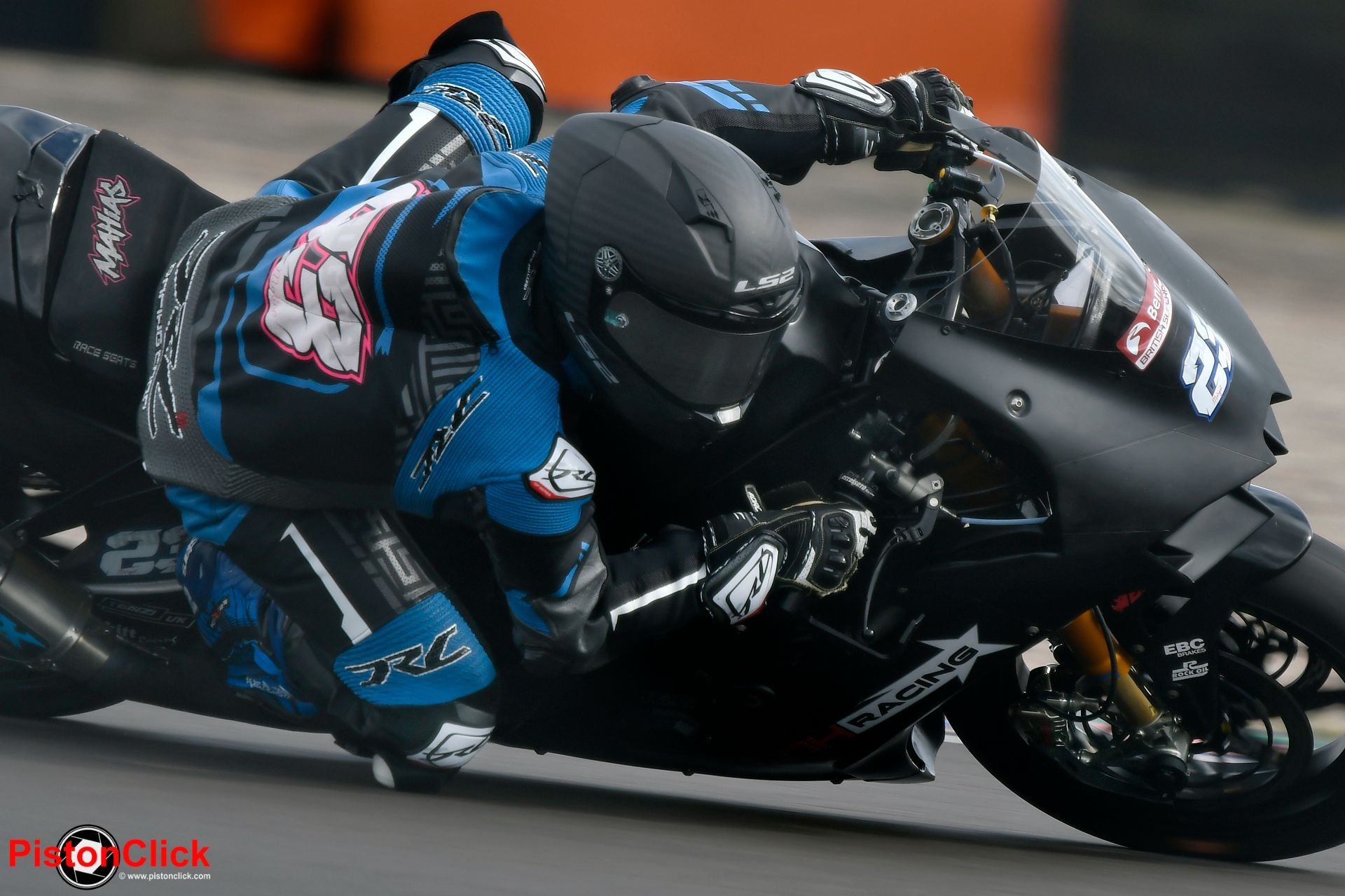
David Harbey Used the Nikon D850 with the 300mm and 500mm PF lenses. Chris Jackson used the Olympus OM-1 with a 40-150mm f2.8 and RPW photography used the Nikon D500 with a 200-400mm f4.
You can find more of Davids images by following the links below.

